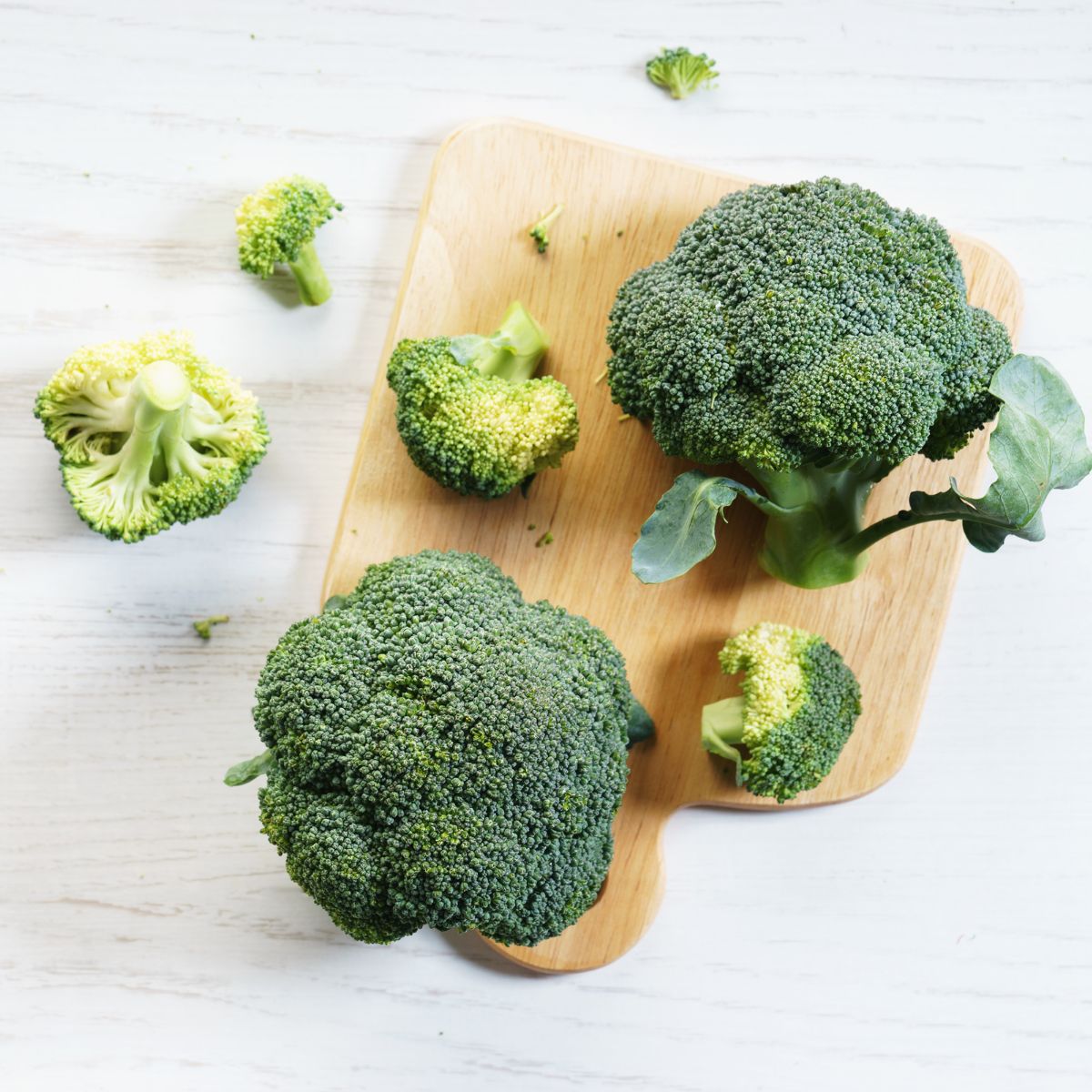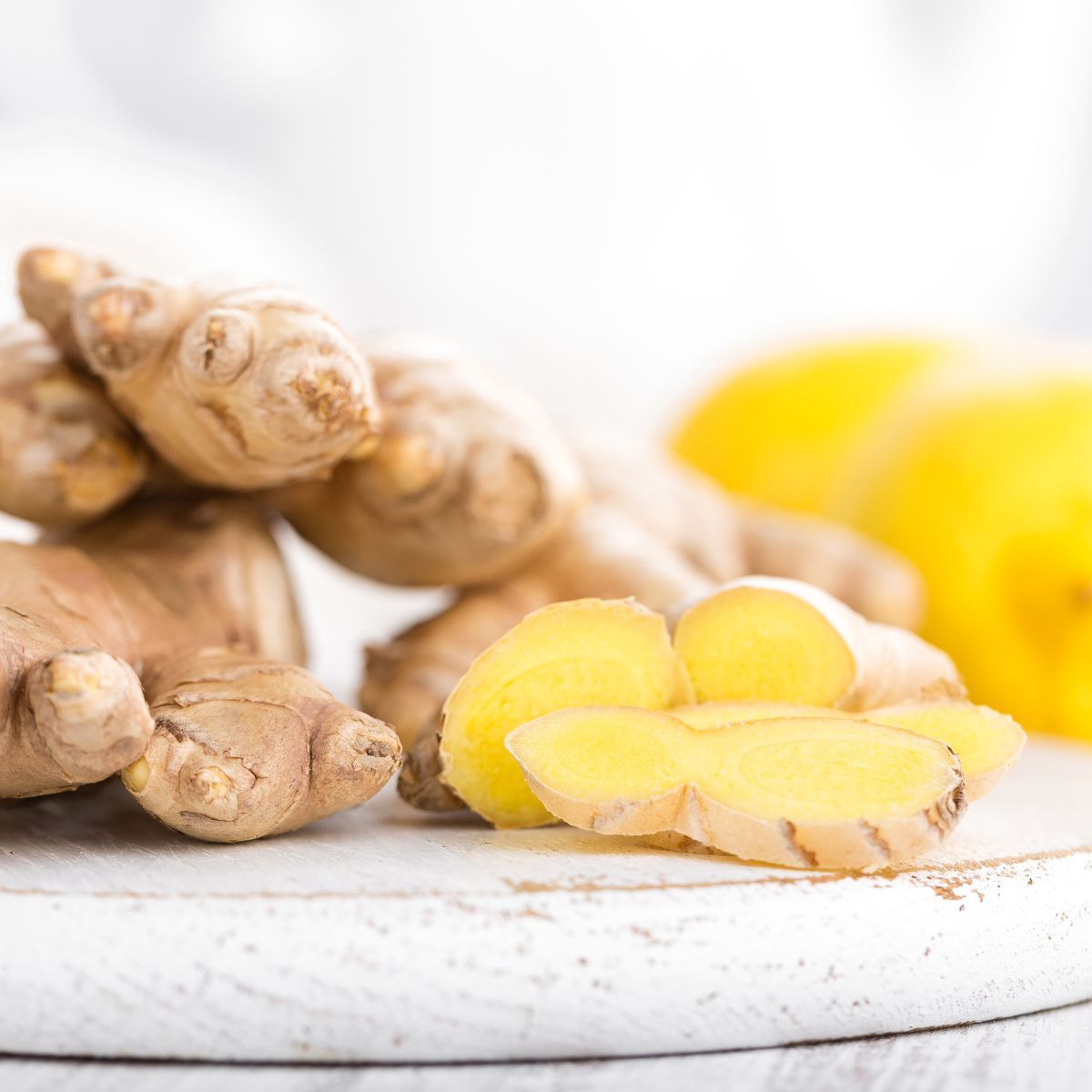Dr. Stephanie Peacock’s Top Foods for Gut Health
Every time we eat, we feed the trillions of bacteria that make up our gut microbiome. Ideally, we should have 300–400 types of these bacteria.[1] But unfortunately, due to processed foods and lack of fiber, many individuals have less than this.
This loss of critical microorganisms and the lack of diversity in our microbiome can lead to bloating, constipation, acid reflux, fatigue, brain fog, and even skin rashes. These are among the most common ailments today. No wonder gut health has become such a hot topic in recent years!
To restore balance to our gut microbiome, we need to include plenty of fiber in our diets. Fiber is what good gut bacteria like to feed on; harmful bacteria can outgrow good bacteria if we fail to eat enough fiber, potentially compromising gut barrier function and leading to the symptoms above.
The best way to ensure you get enough fiber is to eat a wide variety of plant-based foods, as in a whole food, plant-based (WFPB) diet. As always, the most important thing is the broad dietary pattern. In the same way that you cannot beat an unhealthy diet by taking a handful of supplements, neither should you try overcoming a fiber-deficient diet by focusing on only one or two foods. All plants benefit us, and never more so than when we consume a large variety of them.
That said, there are a few particular foods I want to highlight for their gut health benefits.
1. Chia and Flax Seeds
These seeds are a rich source of prebiotic fiber, a type of fiber our bodies cannot physically digest and which serve as a food source for our good gut bacteria. They have a gelatinous consistency and can help to support gut barrier integrity by providing a layer of protection for it.
They are so easy to add to your everyday diet! Great options for adding them include oatmeal, smoothies, or on top of salads.
2. Barley
Compared to other grains, barley does not get enough attention! It is rich in beta-glucan, which promotes the growth of healthy gut bacteria.[2] Like other grains, barley is also a good source of B vitamins, which are very important for cellular function, helping the enzymes in our bodies perform different functions, such as converting nutrients into energy.
To get even more out of your grains, soak them for 8–10 hours before cooking; this improves nutrient bioavailability!

3. Broccoli
My favorite vegetable for so many reasons! Sulforaphane—a chemical that increases healthy gut bacteria[3]—is found in all cruciferous vegetables, but it is especially high in broccoli and broccoli sprouts. Sulforaphane can also aid in repairing a compromised gut barrier by stimulating the formation of the junction between the cells that line the gut .[4] These junctions are supposed to be tightly sealed to prevent anything from crossing into our bodies, but if your gut is experiencing inflammation, that junction can be more open, allowing for the absorption of unwanted things.
Adding a teaspoon of mustard powder after cooking broccoli might help restore the beneficial compounds destroyed during the cooking process.
4. Sweet Potatoes
These are fantastic sources of resistant starch; this is a type of starch our bodies’ enzymes are resistant to digesting, which makes its way down to our colon, where the good gut bacteria break it down for food.When those bacteria break down resistant starch, a short-chain fatty acid called butyrate gets created, which is the main energy source for the cells in our colon! It’s very beneficial in supporting our digestive health.[5]
One of the best things you can do is to let your potatoes fully cool before reheating them. This is called starch retrogradation, and it allows for those beneficial compounds broken down during the cooking process to rebuild.
5. Wild Blueberries
You can’t go wrong by including any berry in your diet, but wild blueberries have the highest antioxidant and polyphenol content. Polyphenols are a group of compounds found in plants that have numerous positive health effects, including improved digestion.
Wild blueberries have twice the antioxidant content of cultivated blueberries, providing even more protection against inflammation. Research has shown that wild blueberries can increase a class of gut bacteria known as Bifidobacterium, which exerts positive health effects on our gut.[6]

6. Ginger
This versatile root is one of my favorite items to add for that extra anti-inflammatory and gut health boost. Ginger promotes gastric motility, which is critical for preventing bacterial overgrowth and excreting toxins.[7]
Ginger is super easy to add to your diet! Adding ginger powder to your cooking, smoothies, and dressings will provide similar benefits to the fresh root.
References
- Gorbach SL. Microbiology of the Gastrointestinal Tract. In: Baron S, editor. Medical Microbiology. 4th edition. Galveston (TX): University of Texas Medical Branch at Galveston; 1996. Chapter 95. Available from: https://www.ncbi.nlm.nih.gov/books/NBK7670/
- Jayachandran M, Chen J, Chung SSM, Xu B. A critical review on the impacts of β-glucans on gut microbiota and human health. J Nutr Biochem. 2018 Nov;61:101-110. doi: 10.1016/j.jnutbio.2018.06.010. Epub 2018 Aug 10. PMID: 30196242.
- Noelle L Johansson, Charles S. Pavia, and Jen Wei Chia, “Growth Inhibition of a Spectrum of Bacterial and Fungal Pathogens by Sulforaphane, and Isothiocyanate Product Found in Broccoli and Other Cruciferous Vegetables,”Planta Medica 74, no.7 (June 2008): 747-50, https://doi.org/10.1055/s-2008-1074520
- “Sulforaphane Normalizes Intestinal Flora and Enhances Gut Barrier in mice with BBN-Induced Bladder Cancer.,” Molecular nutrition & Food Research 62, no. 24 (2018): e1800427, https://doi.org/10/.1002/mnfr.201800427
- Liu M , Li X , Zhou S , Wang TTY , Zhou S , Yang K , Li Y , Tian J , Wang J . Dietary fiber isolated from sweet potato residues promotes a healthy gut microbiome profile. Food Funct. 2020 Jan 29;11(1):689-699. doi: 10.1039/c9fo01009b. PMID: 31909777.
- Vendrame S, Guglielmetti S, Riso P, Arioli S, Klimis-Zacas D, Porrini M. Six-week consumption of a wild blueberry powder drink increases bifidobacteria in the human gut. J Agric Food Chem. 2011 Dec 28;59(24):12815-20. doi: 10.1021/jf2028686. Epub 2011 Nov 18. PMID: 22060186.
- Wu KL, Rayner CK, Chuah SK, Changchien CS, Lu SN, Chiu YC, Chiu KW, Lee CM. Effects of ginger on gastric emptying and motility in healthy humans. Eur J Gastroenterol Hepatol. 2008 May;20(5):436-40. doi: 10.1097/MEG.0b013e3282f4b224. PMID: 18403946.
